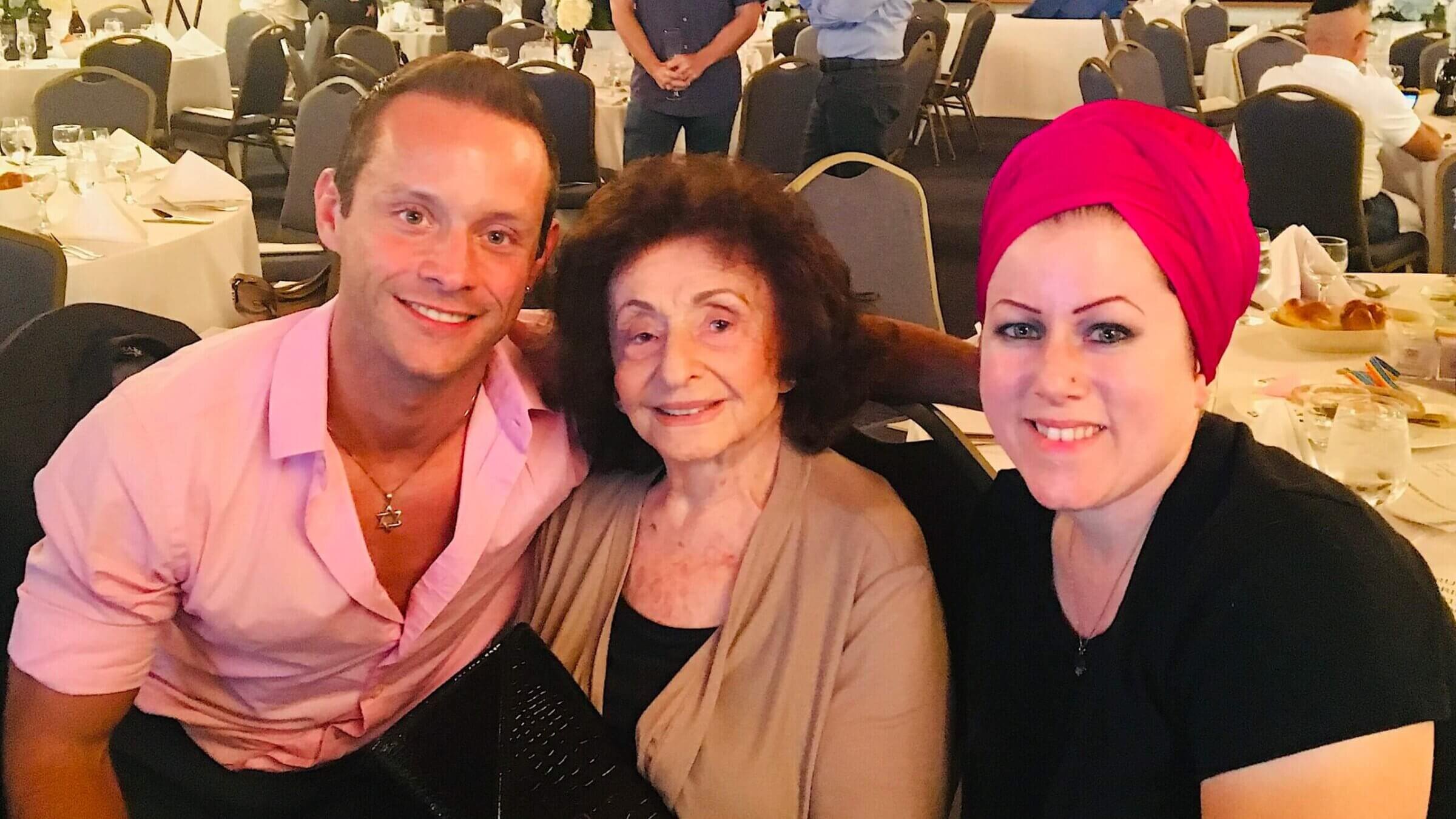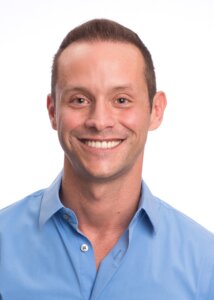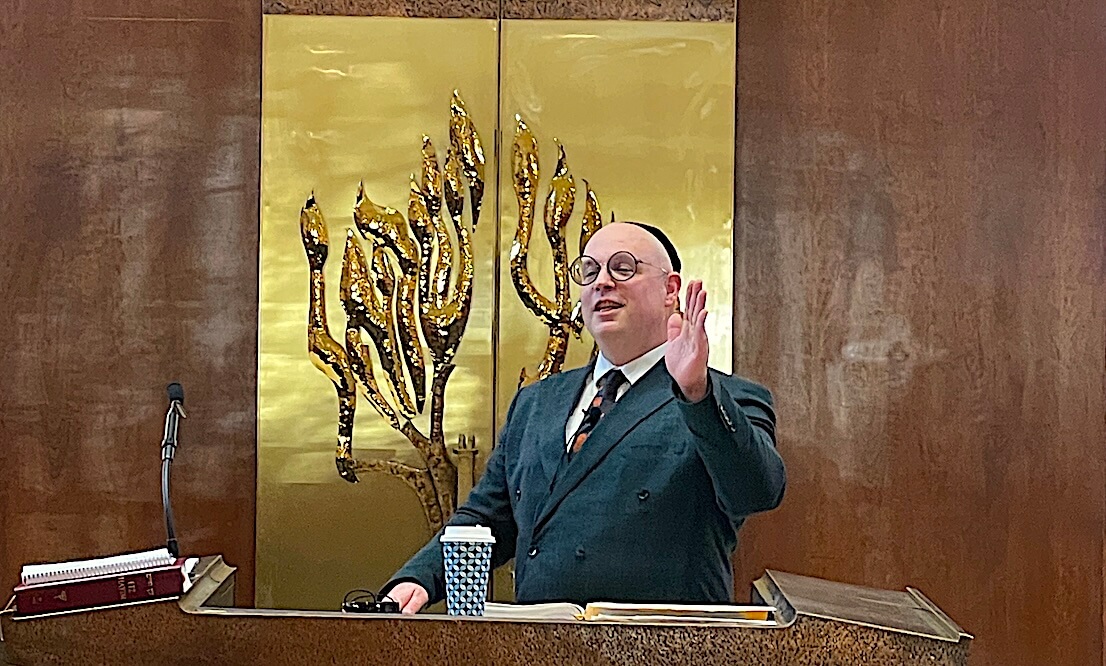How a colorfully dressed Orthodox Jewish woman became my soul sister
As a secular Jew, I was astounded to see how similar our Jewish journeys were

From left: Moishele, Raquel and Rivke Courtesy of Moishele Alfonso
Read the article in Yiddish here.
I was standing next to a green bus stop sign in La Pequeña Habana (Little Havana) in Miami. Tiny pearls of sweat dripped beneath the collar of my soaked-through, pink dress shirt.
Normally I take the car everywhere but the day before, my gray, beat-up clunker had broken down and I needed to run an errand in the city. In my hand, I held pages I had printed out of a Yiddish book that I intended to read on my hour-long ride. I’m not the type of person to gaze out of the bus window and daydream. I like to have something to do.
Suddenly, a young woman appeared — a curious figure with an oval, milk-white face. She was wearing a long, loose, light-purple kaftan, with a colorful, handwoven, Peruvian satchel thrown over her shoulder. On her head was a tall turban, exactly the same color as her kaftan. Not one single strand of hair was visible.
The first thought that crossed my mind was: “A turban in this heat? … Nebekh (poor thing)!”
“Excuse me, but why are you reading something in Hebrew?” she suddenly asked. Considering I’m blond and green-eyed, I guess she thought I wasn’t Jewish. “It’s not Hebrew. It’s Yiddish,” I said.
“Di redst yidish?!” (Do you speak Yiddish?) she asked excitedly.
“Yo, ikh red yidish. Du oykh? (Yes, I speak Yiddish. You too?)
“Ikh okh! Ikh hob gevoynt tseyn yur in Boro Park!” (Me too! For 10 years I lived in Boro Park!”)
So now I understood why she was dressed so modestly. And yet, I also noticed a small nose ring. A frum woman with a nose ring? Nu, I had seen stranger things.
“Oh really? In Boro Park?” I exclaimed. “And now you live in Miami?”
“Yeah, I came to live here a few years ago.”
“Oh, nice! I’m Moishele. What’s your name?”
“Rivke.”
The bus pulled up and we both got on. In the beginning, it was difficult for me to understand Rivke’s Hasidic dialect but little by little, I got used to it.
Anyway, I was standing there in the middle of the bus with her, speaking loudly and gesticulating — a bad habit of mine when I speak a foreign language. A lady with two yellow shopping bags on her lap was looking at us. A smile stretched across her face and she said to me in Spanish: “Cállate, que hablas demasiado!” (“Quiet! You talk too much!”) Knowing Spanish, I smiled sheepishly and lowered my voice.
Two seats were freed up, so we sat down and continued talking. Rivke told me she was a convert. I was dumbfounded. At that time, I too was in the process of converting to Judaism after being raised Catholic. Her father was Jewish, but she was raised Protestant. She converted in Boro Park and there, without a single Yiddish lesson, just by living among Hasidim, she learned to speak Yiddish the way they do.
I immediately felt a closeness to her and decided to be candid. Nonchalantly, I said: “By the way, I’m a feygele…I’m gay.”
I waited nervously for her reaction. She looked at me and suddenly — in the middle of the bus, and in Yiddish, of course — said: “I’m a lesbian! I’m married to a Cuban Jewish woman — a Jewban!”
We stared at one another, burst into laughter and embraced warmly. Our conversation became even more animated. Rivke recounted to me that she and her wife, Yvette, are frum; they keep shabbos and kosher. She wears the turban because she’s married. I was fascinated by the whole story — one that was just as bizarre as my own, having grown up in a non-Jewish family in Nashville, not knowing a single Jew, and yet deeply drawn to Yiddish and Judaism.
“My Yiddish is very bad,” Rivke said. “I used to know it really well before, but now I don’t have anybody to speak it with. My wife doesn’t know any Yiddish.”
“Nu,” I suggested, “Maybe you and I can meet up and chat in mame-loshn?”
“Yeah! Let’s do that!”
“Wonderful! Where do you live?”
“In South Beach.”
“Me too!”
“Really? Where?”
“On 13th Street and Meridian, next to Flamingo Park. And you?”
“On Meridian and 11th Street!”
So we were neighbors, living just three blocks from each other!
The bus left downtown Miami and began to quickly cross the MacArthur Causeway, a bridge connecting Miami with Miami Beach. The shimmering skyscrapers, which grace the Miami skyline, disappeared behind us. Tall palm trees stood along each side of the causeway. On the left — enormous villas belonging to international celebrities and the mega-rich. On the right, a row of gigantic cruise ships docked in the still, blue waters of Port Miami.
As the bus approached South Beach, Rivke and I exchanged numbers. She needed to go grocery shopping and got off the bus before me. We hugged again and promised to meet soon.
From that encounter in La Pequeña Habana, a beautiful friendship flourished. Rivke and I did indeed meet to chat in Yiddish. Joining her and her wife Yvette for shabbos in their home marked the first time I ever celebrated a real, traditional Orthodox shabbos. They taught me that being gay and frum doesn’t have to be a contradiction. A mutual friend, Raquel Bondar, who also speaks Yiddish, and I took Rivke to her first “Gay Pride Seder” at Temple Israel of Greater Miami. Soon Rivke became an important part of my life both as a Jew and a Yiddishist.
Throughout the years, we saw each other frequently until the day we met for the last time, in May of 2023. I was about to leave Miami, probably for good, and move in with my parents in Mississippi. We met at a Cuban café on Washington Avenue in South Beach. We reminisced, talked about our lives and our aspirations for the future.
After saying goodbye and hugging each other tightly, I caught one last look at her, her flowing, colorful kaftan fluttering in the wind, as she disappeared among the crowd of passersby.

















